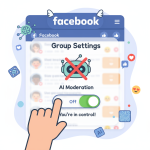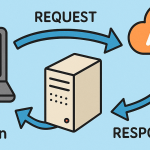This question has gained urgency as educational institutions and training programs seek scalable, efficient assessment methods. AI-powered grading tools have made significant strides, moving beyond simple quizzes to evaluating complex essays and coding tasks. However, can AI fully replicate human judgment in grading? This blog dives into AI’s capabilities, advantages, challenges, and its transformative potential in academic and professional assessment.
Understanding AI Exam Grading Technology
AI exam grading typically involves:
Automated multiple-choice grading: Programmed scoring based on fixed answers.
Natural Language Processing (NLP): To evaluate essays for content, structure, and grammar.
Machine Learning Algorithms: Training on large datasets of graded responses to learn grading patterns.
Speech Recognition: Grading oral exams through voice-to-text analysis.
These technologies combine to facilitate various types of exam grading with increasing accuracy.
Accuracy of AI in Grading Exams
Studies show AI grading systems can reach accuracy rates between 80%-95%, especially for multiple-choice and coding assessments. Essay grading AI tools compare favorably with human graders for consistency but may struggle with creativity, nuance, and cultural context. Continuous model retraining and hybrid human-AI grading systems enhance reliability.
Benefits of AI Grading Systems
Time Efficiency: Dramatically reduces grading time, allowing faster feedback.
Cost Reduction: Minimizes labor costs associated with manual grading.
Consistency: Eliminates human bias or fatigue impacting grading fairness.
Scalability: Handles large exam volumes especially in online learning environments.
Challenges and Limitations
Subjectivity in Essays: Capturing creativity, critical thinking, and argument quality remains tough.
Technical Limitations: Poor handwriting or speech quality can reduce grading accuracy.
Bias Risks: Training data bias might lead to unfair grading in diverse populations.
Ethical Concerns: Transparency regarding AI decisions and student data privacy issues.
How Educators Are Adapting
Educators increasingly adopt hybrid grading models, where AI provides preliminary scores and human experts finalize grades, especially for subjective responses. Many use AI tools for formative assessment while retaining human evaluation for summative exams. AI also aids in detecting plagiarism and ensuring academic integrity.
Future Trends in AI Exam Grading
Explainable AI: Providing transparent reasons behind assigned grades.
Multimodal Grading: Combining text, speech, and visual data for comprehensive evaluation.
Personalized Feedback: Using AI to tailor feedback addressing individual student needs.
Policy Evolution: Establishing standards and regulation for ethical AI grading.
Actionable Tips for Stakeholders
For Software Developers: Prioritize fairness, diverse training data, and transparency.
For Educators: Blend AI grading with human judgment for balanced assessment.
For Institutions: Implement privacy-compliant AI solutions with clear policies.
For Students: Use AI-provided feedback as a learning tool, not just a grade.
Frequently Asked Questions (FAQs)
1. Can AI grade essays as well as humans?
AI excels in consistency and grammar checks but may miss creative ideas and nuanced arguments.
2. Is AI grading reliable for high-stakes exams?
AI can assist, but human oversight remains critical for high-stakes assessments.
3. How quickly can AI grade exams?
AI can grade multiple exams in minutes, accelerating feedback cycles.
4. Are AI grading systems biased?
Bias is possible if training data lacks diversity; ongoing audit is necessary.
5. Will AI replace teachers in grading?
Unlikely; AI supports but does not replace human educators’ expert judgment.
Conclusion
Can AI grade exams? The technology has advanced remarkably, delivering efficiency, consistency, and scalability in grading diverse exam types. However, challenges in capturing human creativity, ethical concerns, and technical limitations mean AI is best seen as a powerful assistant rather than a replacement for human grading. Thoughtful integration of AI grading tools alongside educators promises enhanced assessment quality and student outcomes.
Call to Action:
Are you considering AI grading solutions? Evaluate their accuracy, fairness, and ethical use carefully, and combine them with expert human insight for the best results.








